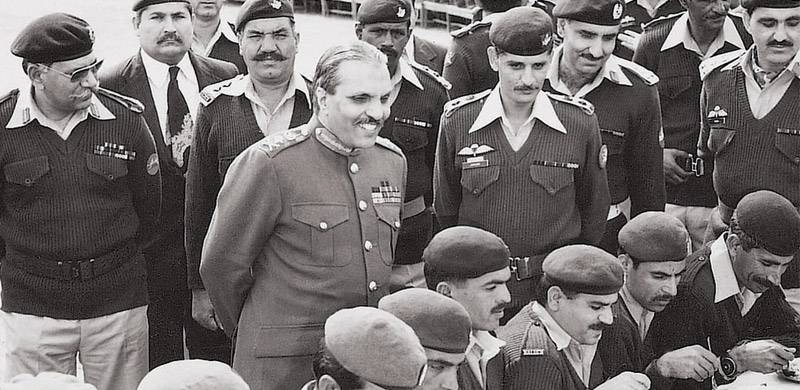
In this second part of his Myth of Indispensability series, Ahmed Faruqui, in the light of the revelations made by General KM Arif in his book 'Khaki Shadows', narrates how Zia convinced himself, his generals and the nation of his indispensability and then became a prisoner to his own myth, becoming more and more paranoid as years passed by. The first part can be read here.
General Muhammad Zia ul-Haq seized power on the 5th of July, 1977 ostensibly to prevent the nation from sliding into a civil war. Earlier that year, the re-election of Prime Minister Zulfikar Ali Bhutto had been questioned by millions who alleged that the elections were marred by large-scale rigging. They had resorted to rioting throughout the country, which had disrupted the social and economic fabric of the country.
In his maiden speech to the nation, Zia said “Operation Fair Play” was going to only last for ninety days. Its only goal was to hold fair general elections. Despite bearing the ominous title of Chief Martial Law Administrator, Zia seemed to suggest that he was only going to act as the Chief Election Commissioner.
Millions took him at his word. The streets quietened down. To many, he came across as being an honest man, a pious Muslim, with no interest in politics. The reality would turn out to be quite different. Zia would go on to stay in power for 11 years later. He only departed the stage when his C-130 nosedived into the earth.
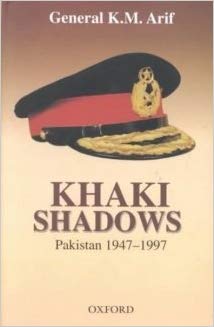
Why did Zia break his promise of only staying in power for ninety days? At some point, Zia, like Ayub before him, convinced himself of his indispensability. And not only did he convince himself, he also convinced the nation that he was indispensable.
Key insights into the workings of Zia’s mind are provided by his deputy, General KM Arif, in his memoirs, “Khaki Shadows.” The book begins by recounting the events that led to Zia’s appointment as army chief. After the 1971 debacle, the disillusioned military deposed General Yahya.
It appointed Bhutto as president who then appointed one of his benefactors, Lt.-Gen. Gul Hassan, as army chief. In a few months, accusing Gul Hassan and co-benefactor Air Marshal Rahim of harbouring “Bonapartist” tendencies, he dismissed both. Gen. Tikka Khan was named as the army chief. He served a normal term through 1976, after which he was named defence minister.
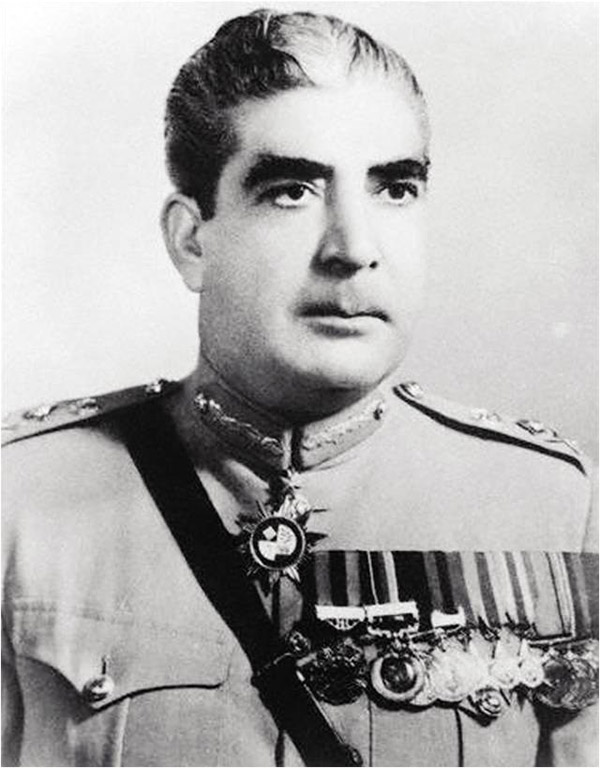
On Tikka’s retirement, Bhutto appointed Zia as the army chief. Zia was promoted out of turn, ahead of seven senior generals. Bhutto, who had seen up-close the coups of Ayub and Yahya, lived in fear of a military coup. The docile Zia seemed a safe bet.
Instead, much to Bhutto’s surprise, the wily Zia overthrew him, ultimately put behind bars on a murder charge and had him executed.
Zia became an international pariah. But the Soviet invasion of Afghanistan just a few months later turned him into a statesman.
Zia was abroad when General Yahya passed away. He received a request from Lt.-Gen. Sawar Khan to accord Yahya a general’s funeral. Sawar noted that Yahya had not been tried by a court. Zia approved the request, over-ruling the charges that were made against Yahya in the Hamoodur Rehman Commission report.
While the report was not released to the public, Zia knew only too well that it called for putting Yahya and his fellow generals on trial for three reasons.
Despite all his talk about restoring democracy after he lifted martial law in 1985, Zia’s real “parliament” was the Corps Commanders conference. Even there, he dominated the proceedings. The few who questioned Zia had their careers truncated.
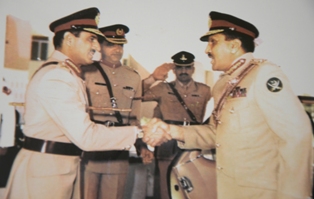
The list included the hapless Junejo, hand-picked by Zia as the prime minister. Junejo, who had begun to assert his independence after the explosion at Ojhri Camp, was sacked when Zia invoked the Eighth Amendment.
Arif asserts that Zia’s personal dominance in national affairs weakened the institutions of the state including the ministry of defence. The service chiefs discussed their issues directly with Zia who made the final decisions, short-cutting the due process. These cases were then processed through the defence ministry to create a formal record. The ministry which should have been supervising the services was reduced to being a post office.
As his term came to a close, Arif requested that his retirement be announced a couple of months in advance, so he could do the Good Bye tour. However, Zia kept delaying the request, saying that Arif was only 57 years old and that he had a shot at becoming the army chief (should Zia decide to take off the uniform).
One day, Zia surprised Arif by telling him that Junejo had decided to retire him. Knowing that such a decision could not have been made without Zia’s concurrence, Arif asked Zia if he had lost his confidence. Zia denied it. Then Arif asked why he had been under close observation by junior officers. Zia denied that as well. Not even the vice chief of staff was allowed to question Zia.
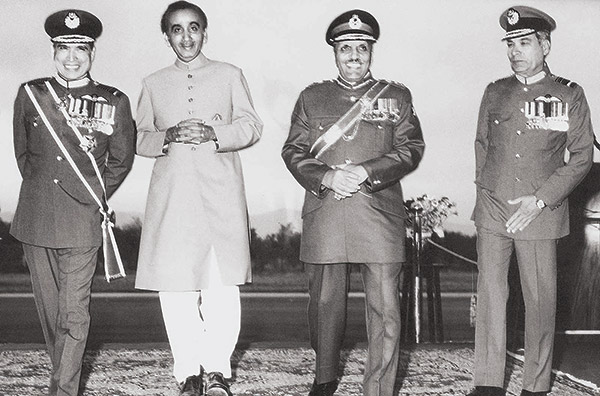
Arif asserts that Pakistan’s coup makers have had no qualms about acting against the Constitution. They are disciples of Napoleon who had said, “He who saves the nation violates no law.” Arif acknowledges that the modern world has discarded such thinking. Soldiering and politics are both full-time professions and cannot be combined.
The book demonstrates that Zia’s rule degenerated into sycophancy as he became convinced of his infallibility and his indispensability. The longer he ruled, the more paranoid he became. Anyone who was remotely seen as a power centre was removed. Loyalty trumped competence in promotions and the army’s fighting blade was dulled.
In a telling statement, General Arif concludes with a plea for democracy, saying “the military has no magic wand to put the wrongs right. Its organising ability and efficiency are best utilised for the defence of the motherland. It performs other tasks at the cost of its defence obligations.”
It was a good thing that Zia’s deputy decided to come clean and share his wisdom with posterity. But why did he not share that wisdom when he was wearing the uniform? Like many, he was convinced of Zia’s indispensability. He also knew, only too well, what would happen to him if he were to oppose the unholy trinity of Army Chief, Chief Martial Law Administrator, and President.
General Muhammad Zia ul-Haq seized power on the 5th of July, 1977 ostensibly to prevent the nation from sliding into a civil war. Earlier that year, the re-election of Prime Minister Zulfikar Ali Bhutto had been questioned by millions who alleged that the elections were marred by large-scale rigging. They had resorted to rioting throughout the country, which had disrupted the social and economic fabric of the country.
In his maiden speech to the nation, Zia said “Operation Fair Play” was going to only last for ninety days. Its only goal was to hold fair general elections. Despite bearing the ominous title of Chief Martial Law Administrator, Zia seemed to suggest that he was only going to act as the Chief Election Commissioner.
Millions took him at his word. The streets quietened down. To many, he came across as being an honest man, a pious Muslim, with no interest in politics. The reality would turn out to be quite different. Zia would go on to stay in power for 11 years later. He only departed the stage when his C-130 nosedived into the earth.

Why did Zia break his promise of only staying in power for ninety days? At some point, Zia, like Ayub before him, convinced himself of his indispensability. And not only did he convince himself, he also convinced the nation that he was indispensable.
Key insights into the workings of Zia’s mind are provided by his deputy, General KM Arif, in his memoirs, “Khaki Shadows.” The book begins by recounting the events that led to Zia’s appointment as army chief. After the 1971 debacle, the disillusioned military deposed General Yahya.
It appointed Bhutto as president who then appointed one of his benefactors, Lt.-Gen. Gul Hassan, as army chief. In a few months, accusing Gul Hassan and co-benefactor Air Marshal Rahim of harbouring “Bonapartist” tendencies, he dismissed both. Gen. Tikka Khan was named as the army chief. He served a normal term through 1976, after which he was named defence minister.

On Tikka’s retirement, Bhutto appointed Zia as the army chief. Zia was promoted out of turn, ahead of seven senior generals. Bhutto, who had seen up-close the coups of Ayub and Yahya, lived in fear of a military coup. The docile Zia seemed a safe bet.
Instead, much to Bhutto’s surprise, the wily Zia overthrew him, ultimately put behind bars on a murder charge and had him executed.
Zia became an international pariah. But the Soviet invasion of Afghanistan just a few months later turned him into a statesman.
Zia was abroad when General Yahya passed away. He received a request from Lt.-Gen. Sawar Khan to accord Yahya a general’s funeral. Sawar noted that Yahya had not been tried by a court. Zia approved the request, over-ruling the charges that were made against Yahya in the Hamoodur Rehman Commission report.
While the report was not released to the public, Zia knew only too well that it called for putting Yahya and his fellow generals on trial for three reasons.
- “Being party to a criminal conspiracy to illegally usurp power”
- “Criminal neglect of duty during the conduct of war”
- “Moral degeneration [that] resulted in indecision, cowardice and professional incompetence.”
Despite all his talk about restoring democracy after he lifted martial law in 1985, Zia’s real “parliament” was the Corps Commanders conference. Even there, he dominated the proceedings. The few who questioned Zia had their careers truncated.

The list included the hapless Junejo, hand-picked by Zia as the prime minister. Junejo, who had begun to assert his independence after the explosion at Ojhri Camp, was sacked when Zia invoked the Eighth Amendment.
Arif asserts that Zia’s personal dominance in national affairs weakened the institutions of the state including the ministry of defence. The service chiefs discussed their issues directly with Zia who made the final decisions, short-cutting the due process. These cases were then processed through the defence ministry to create a formal record. The ministry which should have been supervising the services was reduced to being a post office.
As his term came to a close, Arif requested that his retirement be announced a couple of months in advance, so he could do the Good Bye tour. However, Zia kept delaying the request, saying that Arif was only 57 years old and that he had a shot at becoming the army chief (should Zia decide to take off the uniform).
One day, Zia surprised Arif by telling him that Junejo had decided to retire him. Knowing that such a decision could not have been made without Zia’s concurrence, Arif asked Zia if he had lost his confidence. Zia denied it. Then Arif asked why he had been under close observation by junior officers. Zia denied that as well. Not even the vice chief of staff was allowed to question Zia.

Courtesy: Dawn
Arif asserts that Pakistan’s coup makers have had no qualms about acting against the Constitution. They are disciples of Napoleon who had said, “He who saves the nation violates no law.” Arif acknowledges that the modern world has discarded such thinking. Soldiering and politics are both full-time professions and cannot be combined.
The book demonstrates that Zia’s rule degenerated into sycophancy as he became convinced of his infallibility and his indispensability. The longer he ruled, the more paranoid he became. Anyone who was remotely seen as a power centre was removed. Loyalty trumped competence in promotions and the army’s fighting blade was dulled.
In a telling statement, General Arif concludes with a plea for democracy, saying “the military has no magic wand to put the wrongs right. Its organising ability and efficiency are best utilised for the defence of the motherland. It performs other tasks at the cost of its defence obligations.”
It was a good thing that Zia’s deputy decided to come clean and share his wisdom with posterity. But why did he not share that wisdom when he was wearing the uniform? Like many, he was convinced of Zia’s indispensability. He also knew, only too well, what would happen to him if he were to oppose the unholy trinity of Army Chief, Chief Martial Law Administrator, and President.
